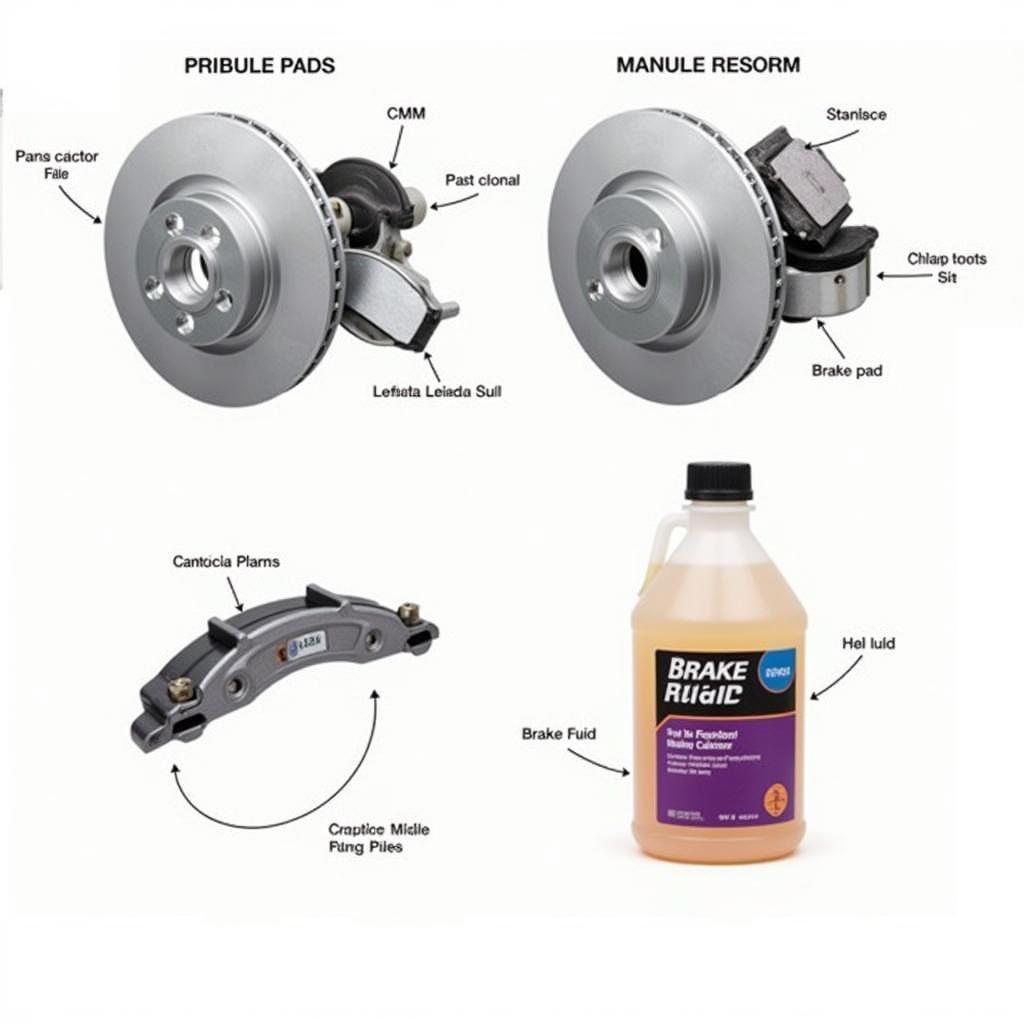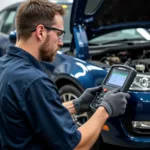General auto service parts and service are essential for keeping your vehicle running smoothly and safely. This guide covers everything you need to know, from routine maintenance to understanding the various parts that keep your car on the road.
Understanding General Auto Service
Regular auto service is crucial for extending the life of your vehicle and preventing costly repairs down the line. It’s not just about fixing problems; it’s about proactive maintenance that keeps your car in optimal condition. This includes everything from oil changes and tire rotations to more complex procedures like brake inspections and transmission service. Ignoring these essential services can lead to decreased performance, reduced fuel efficiency, and potentially dangerous driving conditions.
Why is Regular Auto Service Important?
Regular maintenance helps identify potential issues before they become major problems. Think of it like visiting the doctor for a check-up. Early detection can save you money and hassle in the long run.
- Safety: Regular brake inspections, tire checks, and other safety-related services ensure your car is safe to drive.
- Performance: Routine maintenance, like oil changes and filter replacements, keeps your engine running efficiently and smoothly.
- Resale Value: A well-maintained vehicle with a complete service history commands a higher resale price.
- Peace of Mind: Knowing your car is in good working order provides peace of mind and reduces stress related to unexpected breakdowns.
Key General Auto Service Parts
Your vehicle is a complex machine with numerous interconnected parts. Understanding the function of these key components can help you make informed decisions about maintenance and repairs.
Engine Components
The engine is the heart of your vehicle. Regular maintenance of these parts is vital:
- Oil Filter: Traps contaminants and keeps your engine oil clean.
- Air Filter: Prevents dust and debris from entering the engine.
- Spark Plugs: Ignite the fuel-air mixture in the engine cylinders.
- Timing Belt: Synchronizes the movement of engine components.
Brake System
A properly functioning brake system is critical for safety. Regular inspections and maintenance are essential:
- Brake Pads: Provide the friction needed to stop your vehicle.
- Brake Rotors: The metal discs that the brake pads clamp down on.
- Brake Calipers: House the brake pads and pistons.
- Brake Fluid: Transfers hydraulic pressure to activate the brakes.
 Key Brake System Components: Pads, Rotors, Calipers, and Fluid
Key Brake System Components: Pads, Rotors, Calipers, and Fluid
Suspension and Steering
These systems work together to provide a smooth and controlled ride:
- Shocks and Struts: Absorb bumps and vibrations.
- Steering Wheel: Allows you to control the direction of the vehicle.
- Tie Rods: Connect the steering wheel to the front wheels.
- Control Arms: Connect the wheels to the vehicle frame.
“Regular maintenance isn’t just about fixing what’s broken. It’s about preventing problems before they start.” – John Smith, Automotive Engineer
Choosing the Right General Auto Service Provider
Finding a reputable and trustworthy auto service provider is essential. Look for ASE-certified mechanics and ask for recommendations from friends and family.
“A good mechanic is like a trusted doctor for your car. They should be knowledgeable, honest, and able to explain things clearly.” – Jane Doe, Certified Mechanic
Conclusion
General auto service parts and service are essential for the longevity, safety, and performance of your vehicle. By understanding the key components and prioritizing regular maintenance, you can keep your car running smoothly for years to come. Remember to choose a reputable auto service provider for all your maintenance needs.
FAQ
- How often should I change my oil?
- What are the signs of worn brake pads?
- How do I know if my tires need to be rotated?
- What is included in a general auto service tune-up?
- Why is it important to use the correct type of oil for my car?
- How can I improve my car’s fuel efficiency?
- What should I do if my check engine light comes on?
Situations
- Your car is making strange noises.
- Your car is not performing as well as it used to.
- You are due for a scheduled maintenance service.
- You are experiencing issues with your brakes, steering, or suspension.
Related articles and questions
- How to choose the right tires for your car?
- How to check your car’s fluids?
- How to prepare your car for winter?
Need Help?
Contact us via WhatsApp: +1(641)206-8880, Email: [email protected] or visit us at 321 Birch Drive, Seattle, WA 98101, USA. We have a 24/7 customer service team ready to assist you.


